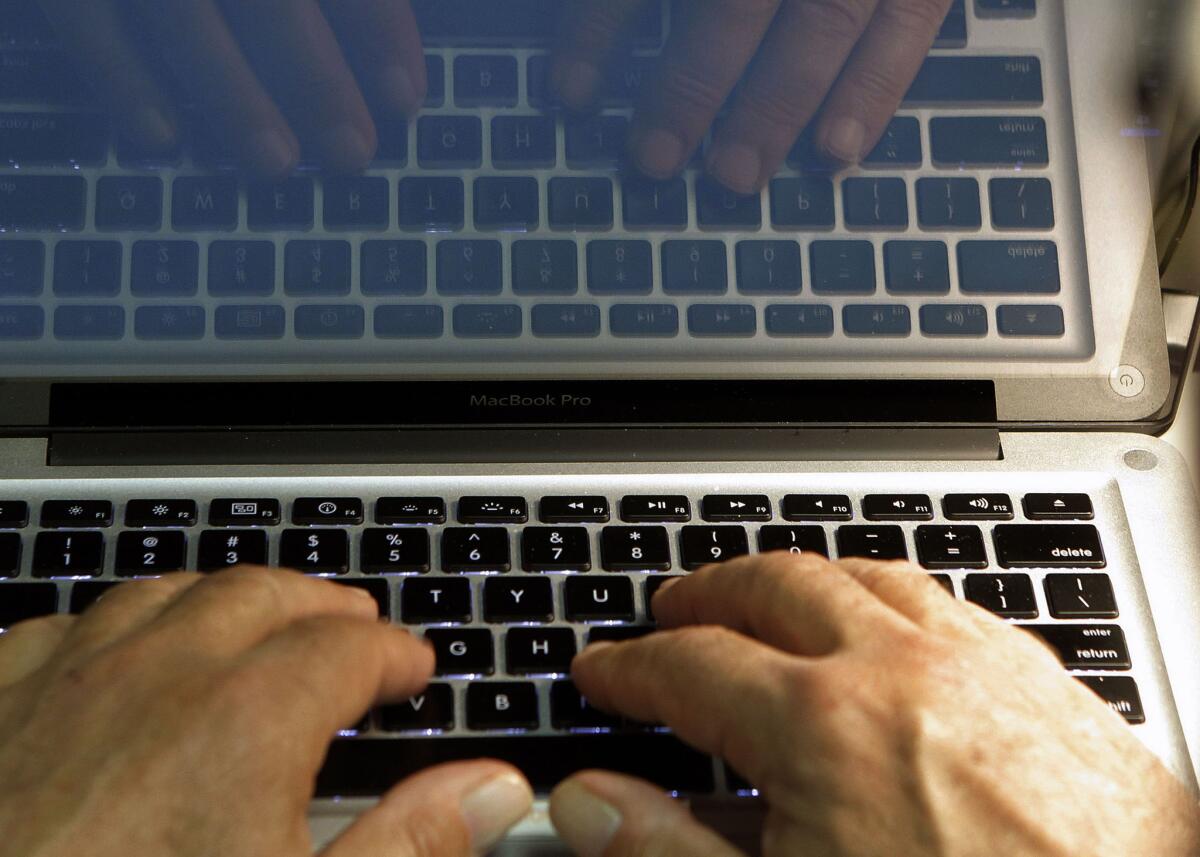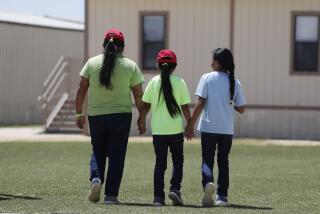The ACLU sues the NSA over mass Internet ‘upstream’ surveillance

- Share via
Tuesday morning, in U.S. District Court in Maryland, the American Civil Liberties Union, on behalf of organizations including the Wikimedia Foundation, PEN American Center, Amnesty International and Human Rights Watch, filed a lawsuit challenging the National Security Agency’s “upstream” surveillance program, which “tap[s] directly into the Internet backbone inside the United States — the network of high-capacity cables, switches and routers that today carry vast numbers of Americans’ communications with each other and with the rest of the world.”
The NSA, the suit avers, is warrantlessly “seizing Americans’ communications en masse while they are in transit, and it is searching the contents of substantially all international text-based communications — and many domestic communications as well — for tens of thousands of search terms.”
On the one hand, this should hardly come as a shock to anyone: Spying is what the NSA does. How can we be surprised when an agency we’ve empowered to look at others turns its gaze back on us? In surveillance culture, everyone is an other, everyone is a suspect, and all information a potential clue. This is why I keep a policy of transparency when it comes to email, social media, the Internet, trying not to say anything online I wouldn’t say in a crowded room.
And yet, what does it mean, that word transparency? For me, it’s a matter of awareness, not self-censorship but its opposite: the willingness to reveal. To participate in the digital public square is, in fact, to publish, which insists (as it does in any venue) that we stand up for our beliefs and our opinions, that we assert, without regard to consequence, what we think and what we feel.
Increasingly, however, writers — in the Unites States and elsewhere — appear to be turning reticent about this responsibility. In 2013, and again early this year, PEN issued reports tracing the effects of surveillance on free expression, and the results are both stunning and sad.
The initial report found that more than 25% of 520 American writers surveyed had avoided writing or speaking on “controversial subjects,” or considered doing so. In the follow-up, we learned that more than a third of writers in so-called “free countries” (the numbers are higher in nations that are “partly free” or “not free”) have done the same. Several respondents admitted concerns about even responding to the PEN survey. “Not to sound paranoid,” one wrote, “but I hesitated — and thought to answer very honestly — these questions.”
This is the purpose of surveillance culture: to make us paranoid.
Still, if, as E.L. Doctorow has suggested, writers can, or should, be “canaries in the coalmine” when it comes to surveillance and self-censorship, that’s part of the point, is it not? Again, the requirement of writing, public expression: to speak out when others might not.
That’s the most disturbing aspect of the PEN reports (especially the domestic one): just how many writers seem willing to curb themselves.
The ACLU lawsuit won’t change that — even if it is successful, which is far from clear. In February 2013, the U.S. Supreme Court dismissed Amnesty v. Clapper, a previous challenge to the NSA’s surveillance program, a decision that apparently helped influence Edward Snowden to go public later that year.
There’s little doubt that we are at a crossroads. What is the essence of American democracy? What kind of nation do we want to be? Do we aspire, as Abraham Lincoln urged, to “the better angels of our nature,” or do we yield to Joseph McCarthy-style hysteria about “enemies from within”? This is the territory mapped by the ACLU lawsuit: the border between freedom and fear.
Freedom is not a privilege, it is a right, which means it is bestowed first, and most fundamentally, from within. As Albert Camus wrote in “The Myth of Sisyphus”: “The only way to deal with an unfree world is to become so absolutely free that your very existence is an act of rebellion.”
How can we be free if we do not first free ourselves? Regardless of the outcome of this lawsuit, that is the issue, the question, with which we most need to engage.
twitter: @davidulin
More to Read
Sign up for our Book Club newsletter
Get the latest news, events and more from the Los Angeles Times Book Club, and help us get L.A. reading and talking.
You may occasionally receive promotional content from the Los Angeles Times.









